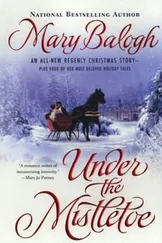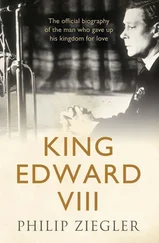Marie Belloc Lowndes
The Life of King Edward VII
Biography of His Royal Highness The Prince of Wales
Published by

Books
- Advanced Digital Solutions & High-Quality eBook Formatting -
musaicumbooks@okpublishing.info
2018 OK Publishing
ISBN 978-80-272-4352-5
Chapter I. An Appreciation
Chapter II. Birth and Early Years
Chapter III. The King’s Boyhood
Chapter IV. Oxford, Cambridge, and the Curragh
Chapter V. The King’s Visit to Canada and the United States
Chapter VI. Death of the Prince Consort—Tour in the East
Chapter VII. The Wedding of King Edward and Queen Alexandra
Chapter VIII. Early Married Life
Chapter IX. Their Majesties’ Tour in Egypt and the Mediterranean
Chapter X. The Franco-Prussian War—The King’s Illness
Chapter XI. 1873-1875
Chapter XII. The King’s Tour in India
Chapter XIII. Quiet Years of Public Work, 1876-1887—Visit to Ireland—Queen Victoria’s Golden Jubilee
Chapter XIV. Silver Wedding of King Edward and Queen Alexandra—Engagement and Marriage of Princess Louise
Chapter XV. The Baccarat Case—Birth of Lady Alexandra Duff—The King’s Fiftieth Birthday—Illness of Prince George
Chapter XVI. The Duke of Clarence and Avondale
Chapter XVII. The Housing of the Working Classes—Marriage of Prince George—The Diamond Jubilee—Death of the Duchess of Teck
Chapter XVIII. Later Years—A Serious Accident to the King—Gradual Recovery—The Attempt on the King’s Life
Chapter XIX. The King as a Country Squire
Chapter XX. The King in London
Chapter XXI. The King and State Policy
Chapter XXII. The King and the Services
Chapter XXIII. The King and Freemasonry
Chapter XXIV. The King as a Philanthropist
Chapter XXV. The King as a Sportsman
Chapter XXVI. Death of Queen Victoria—The King’s Accession
Chapter I.
An Appreciation
Table of Contents
On the Sunday following that eventful 9th of November on which His Most Gracious Majesty King Edward VII. first saw the light, the Rev. Sydney Smith preached at St. Paul’s, and made the following interesting addition to the Bidding Prayer:—
“We pray also for that infant of the Royal race whom in Thy good providence Thou hast given us for our future King. We beseech Thee so to mould his heart and fashion his spirit that he may be a blessing and not an evil to the land of his birth. May he grow in favour with man by leaving to its own force and direction the energy of a free people. May he grow in favour with God by holding the faith in Christ fervently and feelingly, without feebleness, without fanaticism, without folly. As he will be the first man in these realms, so may he be the best, disdaining to hide bad actions by high station, and endeavouring always by the example of a strict and moral life to repay those gifts which a loyal people are so willing to spare from their own necessities to a good King.”
It must be remembered that this prayer was uttered in 1841, and some of the phrases which the great wit used reflect rather the Holland House view of the monarchy entertained at that time. Nevertheless, the prayer is noteworthy because in spirit, if not in the letter, it has been so completely answered. The manner of King Edward’s accession exhibits to a contemplative mind the eternal contrast between East and West. In an Oriental State a new Sovereign is as a rule unknown even in his outward appearance to his subjects, and is generally tossed up on to the throne by the angry waves of some palace intrigue of which he himself knows nothing. But it is the peculiar happiness of the British people that, in the midst of their bitter grief at the loss of Queen Victoria, there came to them the swift thought that one whom they had known and approved from his youth up was her successor, and would assuredly walk in her footsteps.
The accession of a Prince so universally beloved to the throne of his ancestors amid the deeply-felt joy of a great and free people is an inspiring spectacle. Perhaps, however, it is not fully realised how much King Edward, in the years of his public life as Prince of Wales, shared in the duties of the British Crown. The following pages will, it is hoped, show how completely His Majesty and his lamented mother agreed in their conception of the position of ruler of the British Empire. It is known that the death of the Prince Consort drew even closer the ties of affection which subsisted between the late Sovereign and her eldest son, and it would seem as if King Edward from that day forward had set both his parents before himself as exemplars, and had endeavoured to approve himself to his future subjects as a worthy son, not only of Victoria the Wise but also of Albert the Good. It is certainly significant how many of the qualities of both his parents His Majesty possesses.
In those admirable messages to his people, and to India and the Colonies, as well as to his Navy and Army, the King wrote absolutely as his mother would have wished him to write. There is in these documents the same keen personal sympathy, the same human touch, so notable in all Her late Majesty’s letters to her people, the same unerring perception, the same insight which demonstrated how completely the heart of the monarch was beating in unison with that of his people.
Although the British people realised and appreciated the Prince Consort’s great qualities some time before his death, it is, nevertheless, true to say that they never came to regard him with quite the same feeling of affection as that in which other members of the Royal Family were held. This was in no sense the fault of Prince Albert, but is rather attributable to that national prejudice against everything and everybody not originally and completely British which was especially strong in the middle years of the nineteenth century. Certainly we have become more cosmopolitan since those days; we have come to see that the manners and customs of foreign nations are not perhaps always so absurd as our forefathers, at any rate, supposed, and may even in some few respects be worthy of adoption and imitation.
In this salutary process of national illumination King Edward VII. undoubtedly played a considerable part. From the beginning of his public career he endeared himself to his future subjects by his natural bonhomie , his tact, and a certain indefinable touch of human sympathy which characterised all his actions and speeches. He was therefore able to carry on and to develop with extraordinary success his father’s work in promoting, not only the higher pursuits of science and art, but also the more immediately practical application of scientific principles to industries and manufactures. Few people realise how much England’s industrial prosperity was advanced both by the father and the son, and how much greater that prosperity would have been if Prince Albert’s foresight had been better understood and appreciated by his contemporaries.
Prince Albert will also ever be remembered with gratitude by the British people for the unremitting care which he devoted to the education of all his children, and especially to that of his eldest son. Of course the seed must be sown in good ground, and we know that the ground was good; the effect of that early education is seen in the admirable tact with which King Edward filled a most difficult and delicate position for many years. This position was rendered additionally onerous by the sometimes ridiculous, sometimes malevolent, stories which used to be circulated about his private affairs. It is one of the great penalties of Royalty that practically no reply can be made to the voice of calumny and detraction. The increase of the means of communication, and the growth of the newspaper press, have tended to heighten the glare of publicity in which Royalty is compelled to live. But this bright light of publicity does not at all resemble that dry light of reason which Bacon regarded as so essential to the investigations of science; its rays are refracted and distorted by ignorance and clumsiness, if not by actual malevolence. Mr. Balfour’s quiet announcement in the House of Commons soon after the King’s Accession, that on the resettlement of the Civil List no question of debts will arise for consideration—as was the case, for instance, on the Accession of George IV.—is an impressive reply to rumours regrettably current of late years.
Читать дальше













